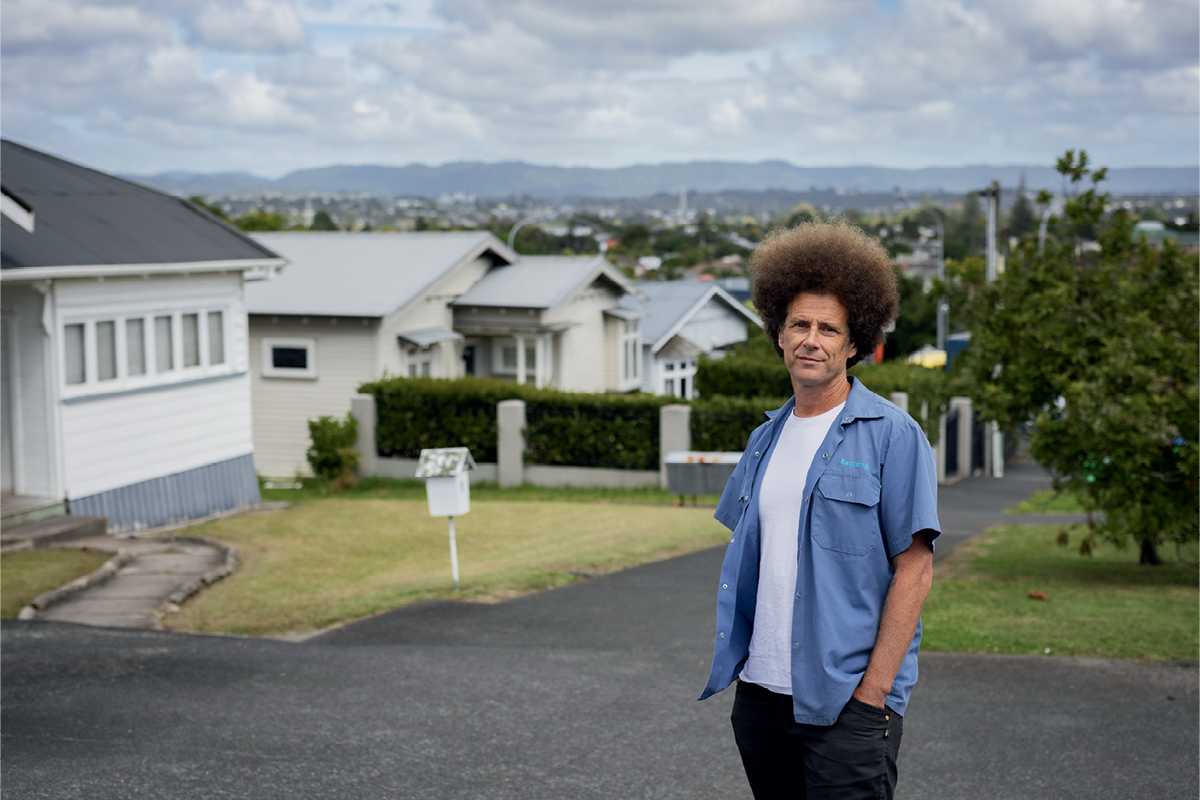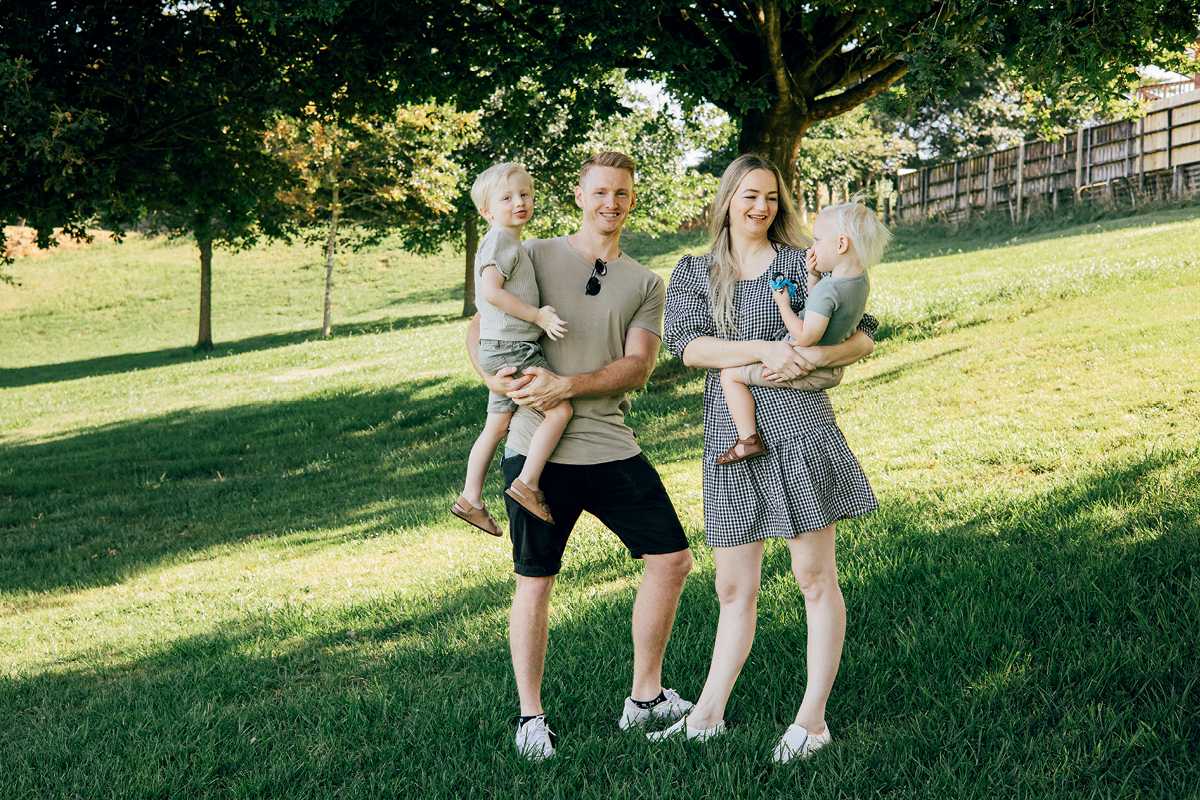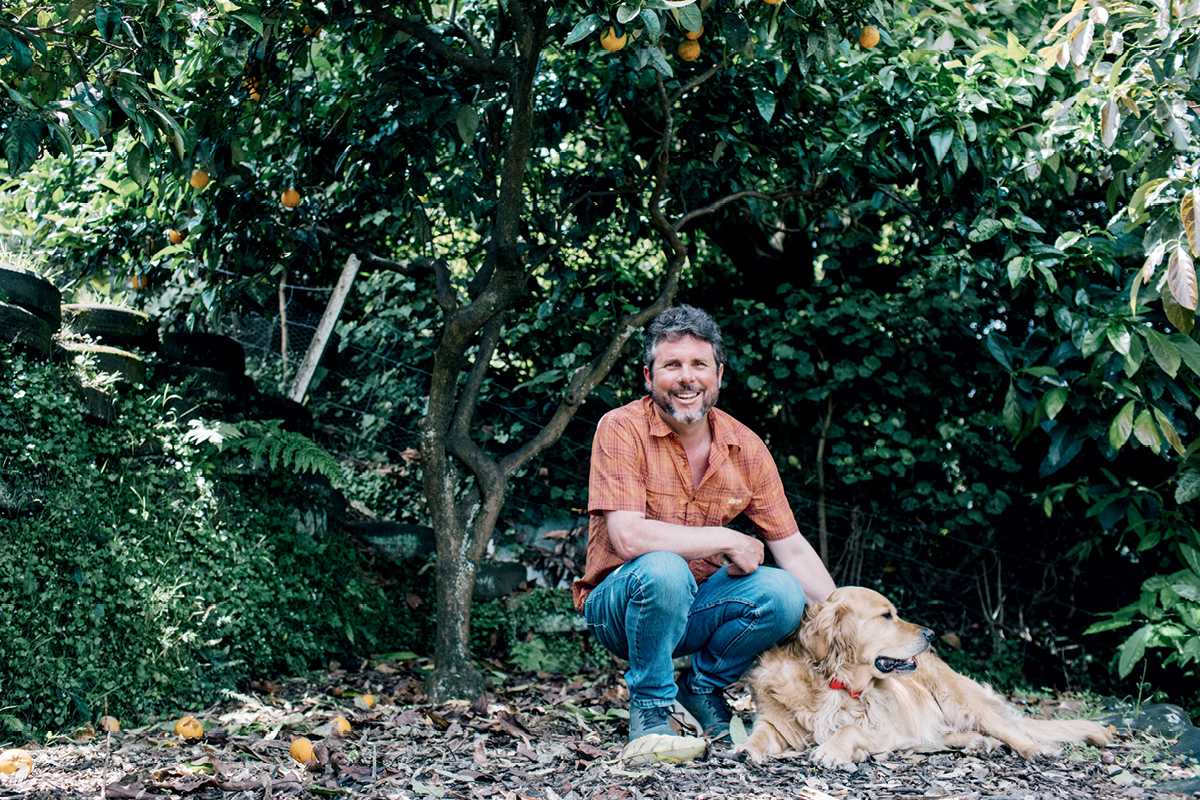
Blast From The Past
Where are they now? Joanna Jefferies revisited some of our profile features from the past 200 issues to see what they’ve been up to and how property has helped them achieve their goals.
1 July 2020

Angela Strang

Jan and Lyle Galloway
Angela Strang
Last year was a busy one for 2015 Landlord of the Year Angela Strang – she got married, had a baby, sold a business and hit $1 million in net worth. It took her just 10 years to go from buying her first rental property in Timaru to being able to live comfortably off the passive cashflow produced by her investment portfolio.
“It definitely happened quicker than I thought it would,” she says. “After working in the mines, I thought I’d never match that money again, but it got easier as my properties increased in value and it just snowballed form there. After three properties it was easier and easier.”
Her advice for new investors is to go at your own pace and not compare yourself to others. You might get some negative feedback, and you’ll have lots of failures, but just have a go and don’t give up.
“I had a contractor who went bust and I lost $23,000 just like that, but don’t be scared of failure. Take lessons from those hard times and get propelled further.”
She says there’s always ongoing renovation on her properties, and she’s always keeping an eye out for a bargain.
In six to 12 months’ time when the financial impact of Covid-19 is really biting she thinks there might be some good positive cashflow deals.
Strang’s immediate plans for 2020 are to spend time with her family and do some volunteer work: “After growing up in not-so-good circumstances I’d like to help other young people in a similar situation.”
Jan Galloway
Jan Galloway and her husband Lyle spent up large on rental properties in Auckland between 2008 and 2010, and were runners-up in the Landlord of the Year award in 2009. Jan built up a successful property management business, Corinthian, then sold that business last year. Since then Lyle has continued to work full time and Jan has taken on some part-time work when it suits her. Recently she just finished a renovation on one of her studio flats: after the quote for removing the asbestos ceilings was just too high, Jan decided to sort them out herself.
“We still own all the properties we bought back then. We haven’t actually sold anything – we’re cling-ons,” she says, laughing. “We bought one or two more, one in a joint venture with another couple, where we ended up buying them out. After 2010 it got expensive to buy in Auckland, so we did some development, adding a minor dwelling to one property and subdividing another one. And there are always renovations to do.”
After years of living in a house with major weather tightness issues that was in worse condition than their rentals, the Galloways decided to pull down their old place and build a brand-new home. It’s mortgage free and has really improved their standard of living.
“We change our minds every three or four months – we are very reluctant sellers! Last year we thought seriously about selling up and putting the money somewhere else, but we’re glad that we didn’t.”

Martin Evans
Former NZPIF president Martin Evans is mostly retired, although he’s still working as a business mentor as well as a director and shareholder at A1 Property Managers in Christchurch. That business is now run by his daughter and son-in-law, and all his children have learned from their dad and are successful property investors in their own rights (two are on the Canterbury Property Investors’ Association committee).
He believes the same rules apply to investing today as applied 30 years ago when he started out: build as much capital as you can during your working life, and don’t spend your capital, only invest it. Don’t go mad on the spending, and you’ll be in a position to buy a bargain or ride out a rough patch like coronavirus.
“If you build capital rather than spending, later in life you’ll have more money, and the more you’ve got to live on the happier you’ll be,” he says.
‘If you build capital rather than spending, later in life you’ll have more money, and the more you’ve got to live on the happier you’ll be’ MARTIN EVANS
Although the fundamentals might hold true, plenty of other aspects of property investment have changed since he started. Where he once bought bargain do-ups, he’s now a cash buyer who prefers to buy new-builds and commercial property. And the low interest rates keep astonishing him: “I once paid 25% interest, and the banks just about had a kneeler where you had to beg for a loan.” He remembers his days as NZPIF president fondly, lobbying on behalf of investors – “that was such a vibe, I loved it.”
At age 25, Evans set a goal to retire by 50. He hit his target early, retiring at 46 with 16 properties and building his portfolio from there. Today he loves spending time travelling, and with his family, which includes his six grandsons, “and I have a granddaughter due in October who will be the most spoiled child in the world!”
Lynnette Butler
After building up her property portfolio for several years, Nelson-based Lynnette Butler was caught out when the Reserve Bank’s loan-to-value ratio restrictions were tightened up in mid-2016. She and her husband had been planning to sell a single property to fund their daughter’s university fees. The bank, however, had other ideas. Like many other investors, it came as a shock to find out the bank could compel them to use the proceeds of the sales to pay down debt.


“I threw all my toys out of the cot and listed the whole bloody lot,” says Butler, who ultimately sold three properties and retained five. Around the same time she also sold her property management company, dabbled in another business, and then decided to change direction.
Butler became a student, completing a graduate diploma in business in 18 months and surprising herself with her own academic success.
“That was absolutely fantastic, it perked me up no end,” she says. While she was organising her next course, Butler applied for a housing role at the Ministry of Social Development. Despite not having had a formal job since leaving the Air Force in 1997, Butler got the job and loves it. As a housing broker, she helps people become homeowners by working across the house-buying process. She’s found it hugely rewarding to use all the skills she’s built up after decades in the property industry to get people on the housing ladder who might otherwise have missed out.
‘When the GFC hit I had to do a massive retrenching, selling around half my rentals’ TOBY YORKE
For her own investments, she’s going to wait until the dust settles on the Covid-19 fallout and then see if she can borrow more money and buy again: “I’ve got my eye on a small development deal right now. As soon as I can borrow again, I’ll be looking!”
Toby Yorke
Auckland investor Toby Yorke has ridden the highs and the lows of property investment – and he’s come out smarter, more philosophical and with a “battle proof foundation”.
“I made some bad decisions prior to the GFC; I changed my buying rules, made some bad purchase decisions and created a domino effect,” he says.
“When the GFC hit I had to do a massive retrenching, selling around half my rentals. It was a bad period financially and I had to divest a reasonable amount of my rentals. I decided I didn’t ever want to experience that again. Over the past two or three years, I have been looking hard at how I want my life to be, and I decided to consolidate my portfolio even further so I’ve sold off 80% of my rentals.”

Using the capital generated by selling some of his rentals, Yorke is developing a block of units. The total debt on those will be very low once he’s finished, putting him in the kind of strong financial position he’s been aiming for and allowing him to pick and choose with his workload.
“A lot of people focus on how many properties you have and what you’re worth, and I know I’ve been guilty of that. When I had seven properties I thought, ‘I’ll get to 10 then I’ll start paying them off’, but I didn’t, I kept buying. Then I got to 20 and I still kept going, because I was focused on my ego rather than my goal,”
Yorke says. “But there’s a big difference between having a high net worth and having financial independence. It’s not about the strategy, it’s about the goal.”
Play your own game and focus on your personal goals, says Yorke, rather than being swayed by what other people are doing. Now, with his small-scale portfolio and block of units, he feels as though he’s getting close to exactly where he wants to be.
“There have been plenty of times when I’ve been crying on the floor like a baby with tenants not paying, beating up houses, burning down houses and thinking, ‘My god, there’s got to be an easier life,’” he says. “But by sticking with it, I’m ultimately seeing the fruits of my labour. I’m now keeping it small, easy to manage and maintain, and things might change, but I’ve now got a battle-proof foundation.”
Jono Frankle
Jono Frankle and his wife Karen became well-known after winning Our First Home in 2015. Since then Jono has immersed himself in property, renovating and trading across Auckland, while also aiming to build a personal buy-and-hold portfolio.
It’s been over a year since he did any trading in Auckland, partly because it’s tough to make the numbers work, and partly because he’s now a managing director and owner at property investment training business Wealth Mentor.
“We’ve been on stage alongside Tony Robbins and Robert Kiyosaki, it’s been pretty damn cool,” says Frankle. “The lockdown also gave us the chance to build some online courses, which will launch pretty soon.”
He’s also been buying outside Auckland, picking up a few three-bedroom standalone properties in Whanganui as well as a dual income one.
He’s also purchased for the first time in Napier, buying a pair of two-bedroom units.
“I always renovate them after I buy, it’s in my blood,” he says. “Strategy-wise, as well as high yields I’m always trying to get the biggest sections possible for future development.”
Frankle is hoping to buy and hold in Auckland this year if prices drop at all. He’s optimistic that new consent exemptions making it easier to build sleepouts could provide a cost-effective value-add for investors.
“We won’t know what the market will look like until we get to the end of the mortgage holidays and wage subsidies, so we’re probably a wee bit away from seeing the real effect [of Covid-19]. I believe there will be a bit of a dip in the market; get ready to buy and enjoy it. I think the growth out the other side will be pretty strong.”


